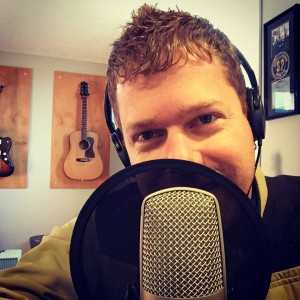 What are your music goals for 2016? Do you work best when other people can hold you accountable? We do too. That’s why in this episode, Kevin and Chris each list a few things they hope to accomplish with their music-making in the year ahead. Plus, some guesses at what the music industry will look like 12 months from now. What’s your prediction?
What are your music goals for 2016? Do you work best when other people can hold you accountable? We do too. That’s why in this episode, Kevin and Chris each list a few things they hope to accomplish with their music-making in the year ahead. Plus, some guesses at what the music industry will look like 12 months from now. What’s your prediction?
 Heard the Buzz about Google Buzz? How about the case of the disappearing music Blogs on Blogger? The Podcasters discuss these topics, share some stories from their own music adventures and revisit last weeks interview with Brian Mazzaferi from I Fight Dragons. Plus your calls and emails AND a very special offer from CD Baby just for our Podcast listening audience.
Heard the Buzz about Google Buzz? How about the case of the disappearing music Blogs on Blogger? The Podcasters discuss these topics, share some stories from their own music adventures and revisit last weeks interview with Brian Mazzaferi from I Fight Dragons. Plus your calls and emails AND a very special offer from CD Baby just for our Podcast listening audience. Brian is a member of the Band I Fight Dragons, who after their first year, find themselves signing a major label record deal. What’s interesting is the events that led them to that deal were very focused DIY tactics that built an enormous amount of buzz and started generating consistently strong sales for their music. We’ve talked to numerous solo artists in past episodes that have built a full time career going completely the DIY route, but in Brian’s opinion it’s still tough as a band that might have 4-5 members to generate enough income on their own to sustain a living for that many people with out some sort of larger machine behind them. He highlights that for bands we might still be in a middle area between the old music business models and the models of the future. I think you’ll find Brian’s insights to be thought provoking and possibly a slightly different take on where things are in the industry. Plus he shares some great DIY tips that has helped them make strong connections with the fans.
Brian is a member of the Band I Fight Dragons, who after their first year, find themselves signing a major label record deal. What’s interesting is the events that led them to that deal were very focused DIY tactics that built an enormous amount of buzz and started generating consistently strong sales for their music. We’ve talked to numerous solo artists in past episodes that have built a full time career going completely the DIY route, but in Brian’s opinion it’s still tough as a band that might have 4-5 members to generate enough income on their own to sustain a living for that many people with out some sort of larger machine behind them. He highlights that for bands we might still be in a middle area between the old music business models and the models of the future. I think you’ll find Brian’s insights to be thought provoking and possibly a slightly different take on where things are in the industry. Plus he shares some great DIY tips that has helped them make strong connections with the fans.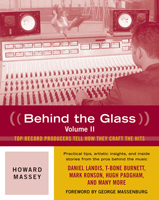 Howard Massey is a recording engineer and producer turned writer and author.  He authored the books Behind the Glass Volume 1 & 2 that chronicles the many hours he spent talking to music producers from all different recording backgrounds.  Investigating how they go about recording and making great albums. People like George Martin, and Daniel Lanois, to name a few. It covers all the inside detail people want to know about the actual process of getting in the studio and creating good music.  Volume one was written almost ten years ago, so it’s interesting to see how the changes in the music industry effect the tone of the conversations.  In the interview, we discuss the role of the producer, what they bring to a recording, and the unique ideas that are are changing the way records are made.
Howard Massey is a recording engineer and producer turned writer and author.  He authored the books Behind the Glass Volume 1 & 2 that chronicles the many hours he spent talking to music producers from all different recording backgrounds.  Investigating how they go about recording and making great albums. People like George Martin, and Daniel Lanois, to name a few. It covers all the inside detail people want to know about the actual process of getting in the studio and creating good music.  Volume one was written almost ten years ago, so it’s interesting to see how the changes in the music industry effect the tone of the conversations.  In the interview, we discuss the role of the producer, what they bring to a recording, and the unique ideas that are are changing the way records are made. iTunes and Lala tie the knot and tech blogs are a buzz with the news. What does this mean for the future of digital music? Are we moving into the cloud? Also, 2009’s top ten viral videos are not what you might expect (sadly no monkey that smells his own poop and then falls backwards out of a tree). The Podcasters recap last weeks interview with Ryan States and chat about their holiday music endeavors. Plus your stories, tips, tricks and comments on our listener line. Enjoy this episode with a cup of hot coco. We’ll see you next year!
iTunes and Lala tie the knot and tech blogs are a buzz with the news. What does this mean for the future of digital music? Are we moving into the cloud? Also, 2009’s top ten viral videos are not what you might expect (sadly no monkey that smells his own poop and then falls backwards out of a tree). The Podcasters recap last weeks interview with Ryan States and chat about their holiday music endeavors. Plus your stories, tips, tricks and comments on our listener line. Enjoy this episode with a cup of hot coco. We’ll see you next year! As we head into the next decade armed with faster internet connections and more bandwidth, it’s exciting to see the innovative ways artists are starting to collaborate with each other. Entire albums are now being recorded by exchanging files across the web which has allowed incredible access to musicians who were formerly only available if you were in the right town. Ryan States got a job playing keyboard in the circus, which keeps him out on the road constantly, and in years past, many musicians were faced with the decision of whether to stay in town and pursue their own music career, or go out on the road for someone else and get paid.  Even thought Ryan is often in remote locations and makes his home on a train, he’s had some pretty amazing musicians play on his new album, just by exchanging files over the web.  Is this how the album of the future will be made?
As we head into the next decade armed with faster internet connections and more bandwidth, it’s exciting to see the innovative ways artists are starting to collaborate with each other. Entire albums are now being recorded by exchanging files across the web which has allowed incredible access to musicians who were formerly only available if you were in the right town. Ryan States got a job playing keyboard in the circus, which keeps him out on the road constantly, and in years past, many musicians were faced with the decision of whether to stay in town and pursue their own music career, or go out on the road for someone else and get paid.  Even thought Ryan is often in remote locations and makes his home on a train, he’s had some pretty amazing musicians play on his new album, just by exchanging files over the web.  Is this how the album of the future will be made? We’ve been making our list and checking it twice!  Let the CD Baby Podcasters fill your stockings with indie tips and tricks.  In this episode, Kevin, Chris and Bolton discuss the impending holiday season, and how to best position your music to take advantage of the shopping blitz.  The tips come from CD Baby’s Artist Holiday Planning Guide that you can download
We’ve been making our list and checking it twice!  Let the CD Baby Podcasters fill your stockings with indie tips and tricks.  In this episode, Kevin, Chris and Bolton discuss the impending holiday season, and how to best position your music to take advantage of the shopping blitz.  The tips come from CD Baby’s Artist Holiday Planning Guide that you can download 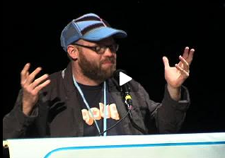 In the News: The RIAA wins it’s case, The New iPhone 3.0 is finally released and Nine Inch Nails frontman Trent Reznor bows out of social networking (or so he says). This week’s episode focuses on a video by Rolling Stone music critic Christopher R. Weingarten. Click the link below to watch. As always, calls, emails and now tweets, from our listening audience.
In the News: The RIAA wins it’s case, The New iPhone 3.0 is finally released and Nine Inch Nails frontman Trent Reznor bows out of social networking (or so he says). This week’s episode focuses on a video by Rolling Stone music critic Christopher R. Weingarten. Click the link below to watch. As always, calls, emails and now tweets, from our listening audience. Bruce Houghton (Founder of Skyline Music) is a long time industry veteran who has been booking music talent of all shapes and sizes for over 20 years. Â As the shift in the music industry became apparent, Bruce started a blog as a way to keep the artists on his roster informed on new developments in the business. Â His blog, called Hypebot, has grown in popularity and become one of the leading music business blogs that pays special attention to the growing indie music community, or as Bruce likes to call it, the musician middle class. Â His experience and insights make his blog a must read for the indie artist who is serious about moving their music forward.
Bruce Houghton (Founder of Skyline Music) is a long time industry veteran who has been booking music talent of all shapes and sizes for over 20 years. Â As the shift in the music industry became apparent, Bruce started a blog as a way to keep the artists on his roster informed on new developments in the business. Â His blog, called Hypebot, has grown in popularity and become one of the leading music business blogs that pays special attention to the growing indie music community, or as Bruce likes to call it, the musician middle class. Â His experience and insights make his blog a must read for the indie artist who is serious about moving their music forward. Pandora adds a paid subscription option with perks. Walmart gets rid of its DRM’d songs. Emusic moves beyond the indie market and stirs controversy. File-sharing is now a part of the Twitter-verse. The podcasters revisit last weeks interview with David Gray and discuss how pop music plays into the world of indie music for better and worse. Your calls, tweets, and comments. Plus in unexpected power outage leaves Kevin, Chris and Robert in the dark. They finish out the podcast in a battery powered fin-alley with lots of laughs.
Pandora adds a paid subscription option with perks. Walmart gets rid of its DRM’d songs. Emusic moves beyond the indie market and stirs controversy. File-sharing is now a part of the Twitter-verse. The podcasters revisit last weeks interview with David Gray and discuss how pop music plays into the world of indie music for better and worse. Your calls, tweets, and comments. Plus in unexpected power outage leaves Kevin, Chris and Robert in the dark. They finish out the podcast in a battery powered fin-alley with lots of laughs. David Gray has done it all. He’s been a musician, songwriter, publisher, producer, A&R rep and worked for some of the most renowned record companies in the world. Currently he’s head A&R for
David Gray has done it all. He’s been a musician, songwriter, publisher, producer, A&R rep and worked for some of the most renowned record companies in the world. Currently he’s head A&R for  Paste magazine launches their “save Paste” campaign in order to preserve one of the top selling music magazines in the country. Webcaster’s rights are debated in the White House. Twitter gets bigger and BIGGER. The podcaster’s recap last weeks interview with professor Nancy Baym and discuss viewing your music career as party which you continually throw for your fans. Plus Your emails and phone calls! It’s a DIY party for the independent musician!
Paste magazine launches their “save Paste” campaign in order to preserve one of the top selling music magazines in the country. Webcaster’s rights are debated in the White House. Twitter gets bigger and BIGGER. The podcaster’s recap last weeks interview with professor Nancy Baym and discuss viewing your music career as party which you continually throw for your fans. Plus Your emails and phone calls! It’s a DIY party for the independent musician!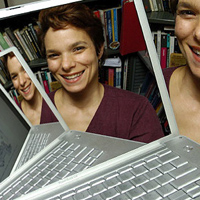 Artists and musicians spend a lot of time communicating with their fan community, whether it be social networks, email, or just the music itself. With so much thought and energy going into fan communication, it funny how little time is actually spend considering the fan’s perspective. In this episodes, we hear from Nancy Baym, an Associate Professor in Communication Studies at the University of Kansas. She is an award-winning teacher on topics including the use of new communication technologies in creating identities, relationships and communities, interpersonal communication, and qualitative research methods. She has spent years studying online fandom to understand what communities like music fans a re really looking for. It might not be exactly what you think!
Artists and musicians spend a lot of time communicating with their fan community, whether it be social networks, email, or just the music itself. With so much thought and energy going into fan communication, it funny how little time is actually spend considering the fan’s perspective. In this episodes, we hear from Nancy Baym, an Associate Professor in Communication Studies at the University of Kansas. She is an award-winning teacher on topics including the use of new communication technologies in creating identities, relationships and communities, interpersonal communication, and qualitative research methods. She has spent years studying online fandom to understand what communities like music fans a re really looking for. It might not be exactly what you think! In the News: Mainstream radio is still a racket. Also, when is the best time of day to Twitter?
In the News: Mainstream radio is still a racket. Also, when is the best time of day to Twitter?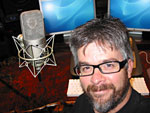 Whether you’re slugging it out in small clubs, or selling millions of albums, there are consistent themes that run through every artist’s experience. Matt Malley, former bass player for the band the Counting Crows, has done both and he shares his experiences as an indie artist and as a member of a major label touring act. Matt joined up with the Counting Crows in 1990, when they were just a California indie band struggling to find a name for themselves in the Bay Area. Little did Matt know that the Counting Crows would soon become a household name. After years of success, platinum albums, and hit songs, Matt left the band in late 2004. Once again he found himself back in the world of indie music, though a bit older and wiser. In 2008, he released his first solo album on CD Baby. Matt’s journey as a musician has become a familiar story as major label artists decide that DIY is sometimes a happy alternative to the rigors of a major label relationship.
Whether you’re slugging it out in small clubs, or selling millions of albums, there are consistent themes that run through every artist’s experience. Matt Malley, former bass player for the band the Counting Crows, has done both and he shares his experiences as an indie artist and as a member of a major label touring act. Matt joined up with the Counting Crows in 1990, when they were just a California indie band struggling to find a name for themselves in the Bay Area. Little did Matt know that the Counting Crows would soon become a household name. After years of success, platinum albums, and hit songs, Matt left the band in late 2004. Once again he found himself back in the world of indie music, though a bit older and wiser. In 2008, he released his first solo album on CD Baby. Matt’s journey as a musician has become a familiar story as major label artists decide that DIY is sometimes a happy alternative to the rigors of a major label relationship. iTunes introduces variable pricing. Facebook stays on top. The podcasters recap our last episode, where David Nevue demonstrated that it’s entirely possible to make a living without the constant touring and gigging that most musicians do. But is this possible for the rest of us? Listen in as the broadcasters weigh in on this topic while sharing calls and comments from our audience.
iTunes introduces variable pricing. Facebook stays on top. The podcasters recap our last episode, where David Nevue demonstrated that it’s entirely possible to make a living without the constant touring and gigging that most musicians do. But is this possible for the rest of us? Listen in as the broadcasters weigh in on this topic while sharing calls and comments from our audience. The internet is an irreplaceable tool for music promotion, but is it possible to build a music career in cyberspace alone?  In this episode, we hear from solo pianist David Nevue, who built his music into a full time career just by creating an effective online presence.  For the modern day DIY artist, David’s business model is the perfect example of what can be accomplished with great music, a little merchandising know-how, and a long term vision.  A lot of ground is covered in this interview, so get ready to take notes!
The internet is an irreplaceable tool for music promotion, but is it possible to build a music career in cyberspace alone?  In this episode, we hear from solo pianist David Nevue, who built his music into a full time career just by creating an effective online presence.  For the modern day DIY artist, David’s business model is the perfect example of what can be accomplished with great music, a little merchandising know-how, and a long term vision.  A lot of ground is covered in this interview, so get ready to take notes! How often do you post a new song, demo, album or blog post? In the web 2.0 universe artists are competing for the attention of an increasingly distracted audience. Keeping your fans engaged often means frequently and consistently producing dynamic content. How does an artist do this without compromising the quality of their product? In this roundtable episode, the podcasters are joined by special guest, artist manager and Portland PR person, Ryan Wines, who wrote an intriguing post on his blog about releasing music with frequency in mind.  Do you have a music promotion strategy that involves releasing music on a frequent basis?  If yes, we want to hear about it!  Read Ryan’s blog here – Â
How often do you post a new song, demo, album or blog post? In the web 2.0 universe artists are competing for the attention of an increasingly distracted audience. Keeping your fans engaged often means frequently and consistently producing dynamic content. How does an artist do this without compromising the quality of their product? In this roundtable episode, the podcasters are joined by special guest, artist manager and Portland PR person, Ryan Wines, who wrote an intriguing post on his blog about releasing music with frequency in mind. Â Do you have a music promotion strategy that involves releasing music on a frequent basis? Â If yes, we want to hear about it! Â Read Ryan’s blog here – Â  pocket computer. In many cases, the actual phone is the least used feature of the device.
pocket computer. In many cases, the actual phone is the least used feature of the device.
 Most indie artists have a day job in order to make ends meet. For some, their “day job†is actually playing music. In this episode, Kevin talks to Greg Poree, the guitar player on the hit TV show, Dancing With the Stars. We’ll hear how Greg worked his way up to such a prestigious position, and get a behind the scenes look into his “day job.â€Â This work is not for the faint of heart. When the red light is on, there is no room for error. Greg shares his tips and insights for all who are interested in pursuing a career as a working musician. If music is your job, we want to hear from you! Please share your tips, tricks, or horror stories!
Most indie artists have a day job in order to make ends meet. For some, their “day job†is actually playing music. In this episode, Kevin talks to Greg Poree, the guitar player on the hit TV show, Dancing With the Stars. We’ll hear how Greg worked his way up to such a prestigious position, and get a behind the scenes look into his “day job.â€Â This work is not for the faint of heart. When the red light is on, there is no room for error. Greg shares his tips and insights for all who are interested in pursuing a career as a working musician. If music is your job, we want to hear from you! Please share your tips, tricks, or horror stories! The big 50! Kevin, Chris and Robert are pleased as punch to have delivered fifty info-packed episodes of the DIY Musician Podcast. They kick off this episode by sharing a few of their favorite lessons learned as well as some recent music business news. Get down to the dirt with our hosts as they visit a touchy topic for hard working musicians: What is the value of your art? Plus your calls, emails and comments.
The big 50! Kevin, Chris and Robert are pleased as punch to have delivered fifty info-packed episodes of the DIY Musician Podcast. They kick off this episode by sharing a few of their favorite lessons learned as well as some recent music business news. Get down to the dirt with our hosts as they visit a touchy topic for hard working musicians: What is the value of your art? Plus your calls, emails and comments. Allen Jones, from Portland Community College, stops by to break it down and aide us musicians in what is usually an ominous task. YOUR ATTENTION PLEASE: This information is provided only as a guide to point you in the right direction. Each individual has a unique tax situation, so it’s important that you seek the advice of a licensed tax preparer. In others words, don’t blame us if you get audited! Now stop procrastinating, and go do your taxes!
Allen Jones, from Portland Community College, stops by to break it down and aide us musicians in what is usually an ominous task. YOUR ATTENTION PLEASE: This information is provided only as a guide to point you in the right direction. Each individual has a unique tax situation, so it’s important that you seek the advice of a licensed tax preparer. In others words, don’t blame us if you get audited! Now stop procrastinating, and go do your taxes! the nuts and bolts of how to create a podcast, and why it’s so important to see yourself as more than a podcaster or blogger, but a content creator. He explains why it’s so important to understand what your fans are looking for in order to engage them properly on the web. Do you have an podcasting or social networking tip or trick? Please share by either leaving a comment, or calling our listener line at 206-426-5683.
the nuts and bolts of how to create a podcast, and why it’s so important to see yourself as more than a podcaster or blogger, but a content creator. He explains why it’s so important to understand what your fans are looking for in order to engage them properly on the web. Do you have an podcasting or social networking tip or trick? Please share by either leaving a comment, or calling our listener line at 206-426-5683. Tom helps artists develop shared moments on stage that often send an audience clambering to the merch table. Tom says the trick is to develop a structured show that leaves room for spontaneity. Join us as Tom shares his expertise on this often overlooked aspect of being a successful performing artist.
Tom helps artists develop shared moments on stage that often send an audience clambering to the merch table. Tom says the trick is to develop a structured show that leaves room for spontaneity. Join us as Tom shares his expertise on this often overlooked aspect of being a successful performing artist.